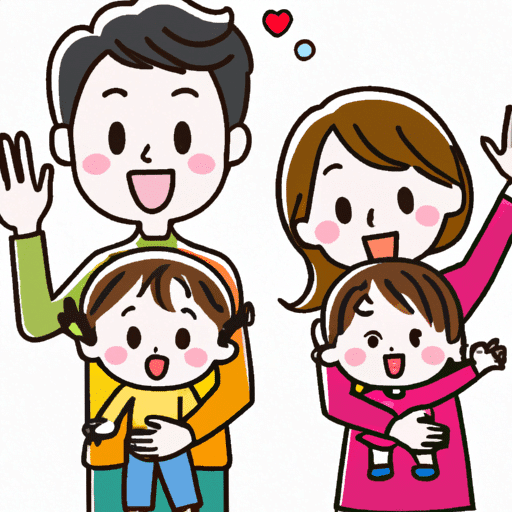Introduction
As parents, we often strive to provide our children with the best possible upbringing, ensuring they have a solid foundation for success in life. While education, discipline, and nurturing play essential roles in this process, one often underestimated aspect is the power of modeling. Children are like sponges, absorbing everything they see and experience. Their moral development, in particular, is heavily influenced by the behaviors and actions of their parents. In this blog, we will delve into the profound impact parents have on their children’s moral development, and how mindful modeling can help shape the ethical compass of the next generation.
Understanding Moral Development
Moral development refers to the process through which individuals acquire their sense of right and wrong, as well as their values and principles. This development begins early in life, usually during childhood, and continues to evolve throughout adolescence and into adulthood. There are several influential theories that provide insights into how this process unfolds, but one of the most renowned is Lawrence Kohlberg’s stages of moral development.
Kohlberg’s theory posits that individuals progress through a series of stages, each building upon the last, to develop a more sophisticated and mature understanding of morality. The stages can be broadly categorized into three levels: pre-conventional, conventional, and post-conventional. Each level includes several stages, with individuals at different ages and life stages operating within these stages.
- Pre-conventional Level: At this stage, children are primarily concerned with avoiding punishment and seeking personal rewards. They base their moral judgments on external consequences rather than internal principles. For example, a child may avoid stealing a cookie because they fear being punished.
- Conventional Level: During this stage, individuals are motivated by societal norms and the approval of others. They begin to develop a sense of duty and loyalty to society’s rules and values. A child might refrain from cheating on a test not only to avoid punishment but also because they understand that cheating is morally wrong and would disappoint their parents or teachers.
- Post-conventional Level: In this stage, individuals develop their own moral principles and values, which may sometimes conflict with societal norms. They are capable of abstract reasoning and often act in accordance with their deeply held beliefs, even if it means breaking the law or defying societal conventions.
The role of parents in this process is crucial, as they significantly impact their children’s progression through these stages.
The Power of Parental Modeling
Children learn through observation and imitation. From a very young age, they watch and mimic the behavior of their parents, absorbing not only the explicit moral lessons parents teach but also the implicit ones conveyed through actions and interactions. Here’s how parents’ actions impact their children’s moral development:
- Modeling Moral Values: Children observe their parents’ ethical conduct and are more likely to adopt similar values. If parents consistently display kindness, honesty, and empathy in their actions, children are likely to internalize these values as their own.
- Social Learning: Parents provide a child’s first social context. How parents treat each other, neighbors, and strangers sets the tone for how children perceive and interact with the world. If parents display tolerance and respect for others, children are more likely to adopt these behaviors.
- Problem-Solving Skills: When parents face moral dilemmas, they provide a real-life example of how to approach and resolve such situations. Children learn from these experiences, gaining insight into ethical decision-making.
- Teaching Empathy: Parents who model empathy and compassion create an environment where children learn to recognize and respond to the emotions and needs of others. This is the foundation for forming healthy relationships and contributing positively to society.
- Consequences of Actions: Children observe the consequences of their parents’ actions. When parents take responsibility for their mistakes and make amends, they teach their children about accountability and the importance of making things right when they go wrong.
Challenges and Common Pitfalls
While parental modeling can be a powerful force for shaping children’s moral development, it’s important to be aware of potential challenges and pitfalls in the process:
- Inconsistency: Inconsistent modeling can confuse children. If parents sometimes exhibit moral behavior but other times act contrary to their stated values, it can lead to confusion and moral relativism in children.
- Double Standards: Parents must avoid applying different moral standards to themselves and their children. If children perceive that parents have a “do as I say, not as I do” approach, they may become cynical about moral principles.
- Over-Sheltering: Overly sheltering children from the real world can inhibit their moral development. While protection is essential, children also need exposure to ethical dilemmas and opportunities to learn from their own experiences.
- Failure to Discuss Values: Modeling alone is not sufficient. Parents must also engage in open discussions about values and ethics. This helps children understand the reasoning behind their parents’ actions and encourages critical thinking.
Practical Strategies for Effective Parental Modeling
- Consistency: Strive for consistency in your moral values and actions. Children are more likely to internalize ethical principles when they see them consistently demonstrated.
- Open Communication: Encourage open and age-appropriate discussions about values and moral issues. Engaging children in conversations about their observations and experiences can help clarify and reinforce their understanding of right and wrong.
- Teachable Moments: Capitalize on teachable moments as they arise. When a moral issue or dilemma presents itself, use it as an opportunity to discuss values, consequences, and alternative actions.
- Lead by Example: Be mindful of your own behavior. Children are always watching, so set a positive example in how you treat others, resolve conflicts, and navigate ethical decisions.
- Acknowledge Mistakes: It’s essential for parents to acknowledge and take responsibility for their own mistakes. This demonstrates humility and teaches children that everyone makes errors, but the key is to learn from them and make amends.
- Expose Children to Diversity: Introduce your children to diverse cultures, perspectives, and experiences. This can broaden their understanding of morality and encourage empathy and tolerance.
- Encourage Empathy: Teach your children to consider how their actions affect others. Encourage them to think about the feelings and needs of those around them.
- Community Involvement: Involve your children in community service and volunteering. These experiences can provide practical lessons in empathy, compassion, and the importance of giving back.
Conclusion
Parental modeling plays a profound role in children’s moral development. As parents, we have the unique privilege and responsibility to shape the ethical compass of the next generation. By being mindful of our actions, engaging in open communication, and fostering empathy and critical thinking, we can contribute to the growth of morally responsible and compassionate individuals. In doing so, we not only impact our children’s lives but also shape the future of society by nurturing individuals who will contribute positively to the world.






117 responses
**mind vault**
mind vault is a premium cognitive support formula created for adults 45+. It’s thoughtfully designed to help maintain clear thinking
Thank you for your sharing. I am worried that I lack creative ideas. It is your article that makes me full of hope. Thank you. But, I have a question, can you help me?